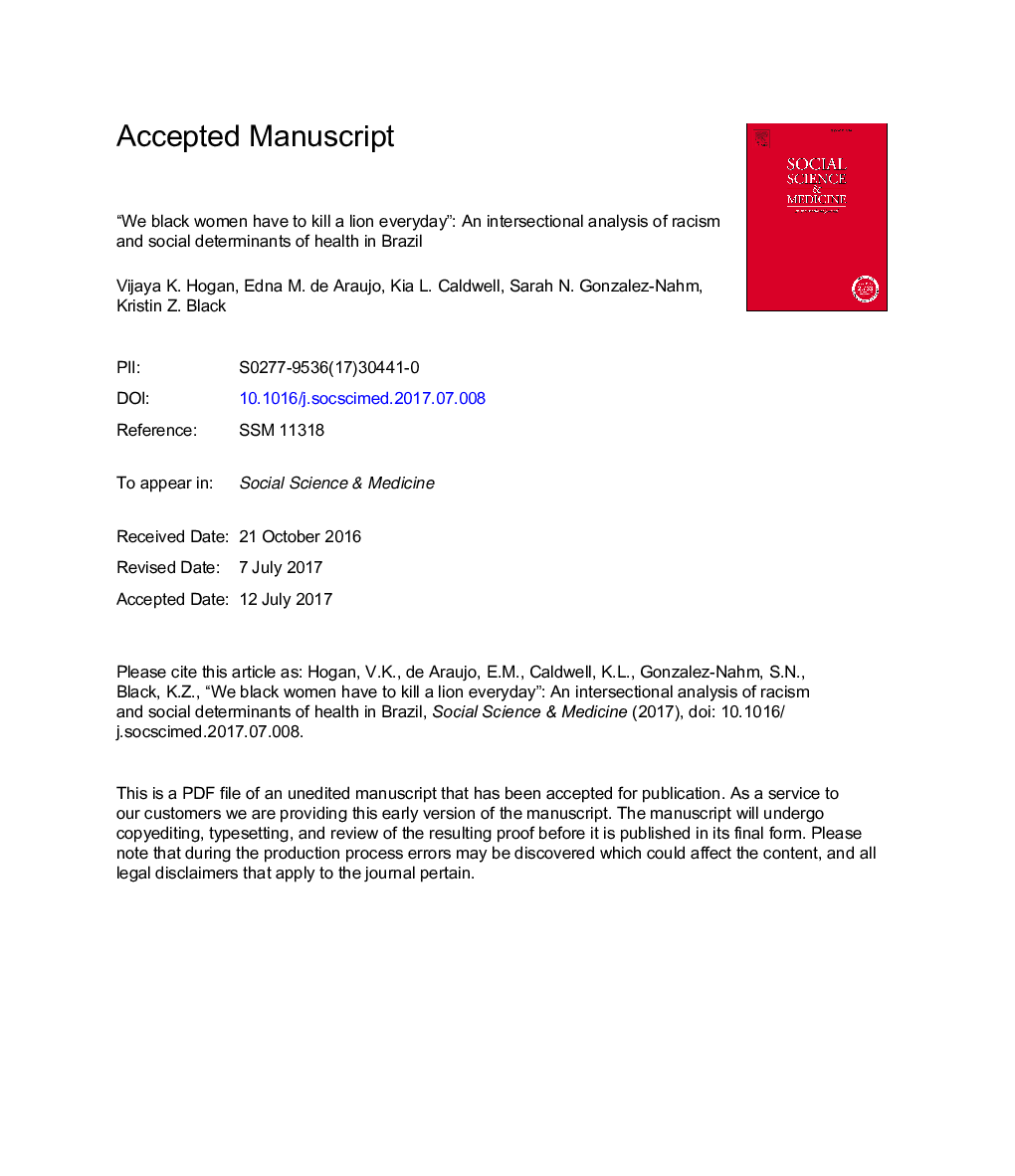| کد مقاله | کد نشریه | سال انتشار | مقاله انگلیسی | نسخه تمام متن |
|---|---|---|---|---|
| 7328529 | 1475970 | 2018 | 38 صفحه PDF | دانلود رایگان |
عنوان انگلیسی مقاله ISI
“We black women have to kill a lion everyday”: An intersectional analysis of racism and social determinants of health in Brazil
ترجمه فارسی عنوان
یک زن سیاه پوست باید هر روز یک شیر بزنید؟ تجزیه و تحلیل متقاطع نژادپرستانه و تعیین کننده های اجتماعی سلامت در برزیل
دانلود مقاله + سفارش ترجمه
دانلود مقاله ISI انگلیسی
رایگان برای ایرانیان
کلمات کلیدی
بینش زنان سیاه، برزیل، بی عدالتی بهداشتی، تعیین کننده های اجتماعی سلامت، حقوق صحیح،
موضوعات مرتبط
علوم پزشکی و سلامت
پزشکی و دندانپزشکی
سیاست های بهداشت و سلامت عمومی
چکیده انگلیسی
The concept of intersectionality has been used to analyze and understand how multiple forms of identity and oppression interact to shape life experiences of marginalized groups. We conducted a qualitative study to explore how Black Brazilian women experience the intersections of race, class, and gender and the ways in which these intersecting experiences act as social determinants of health. Nine focus groups were conducted with Black, White, and mixed-race women of childbearing age (n = 37), social and health activists (n = 11), and health professionals (n = 20). The focus groups took place in two cities in the Brazilian state of Bahia during October and November 2012. Using a comparative approach, we describe participants' responses regarding the life experiences of women of differing racial and class backgrounds. Our findings highlight how the intersectional relationship between race, class, and gender alters women's social context and life course opportunities, as well as their stressors and protective buffers. We argue that the differing intersectional experiences of women due to race and class create unique social contexts that define the parameters of health and wellness. In addition, we argue that the experiences at each intersection (i.e., raceXclass, raceXgender, classXgender, raceXclassXgender) have a unique character that can be qualitatively described. Improved specification of exposures experienced by marginalized populations who experience intersecting forms of oppression can help explain intra- and inter-group differences in health outcomes, and may also lead to improved intervention models.
ناشر
Database: Elsevier - ScienceDirect (ساینس دایرکت)
Journal: Social Science & Medicine - Volume 199, February 2018, Pages 96-105
Journal: Social Science & Medicine - Volume 199, February 2018, Pages 96-105
نویسندگان
Vijaya K. Hogan, Edna M. de Araujo, Kia L. Caldwell, Sarah N. Gonzalez-Nahm, Kristin Z. Black,
